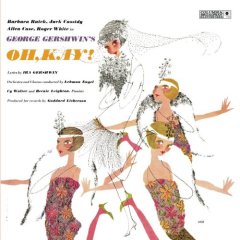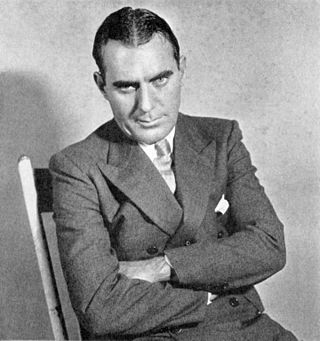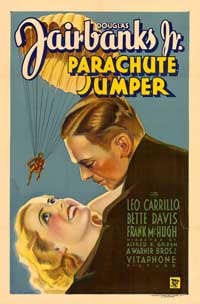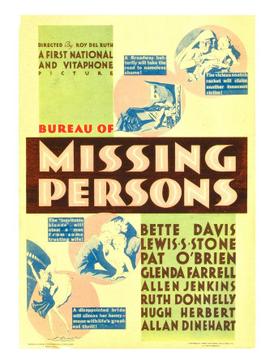
Trent "Junior" Durkin was an American stage and film actor.

Oh, Kay! is a musical with music by George Gershwin, lyrics by Ira Gershwin, and a book by Guy Bolton and P. G. Wodehouse. It is based on the play La Présidente by Maurice Hennequin and Pierre Veber. The plot revolves around the adventures of the Duke of Durham and his sister, Lady Kay, English bootleggers in Prohibition Era America. Kay finds herself falling in love with a man who seems unavailable. The show is remembered for its enduring song, "Someone to Watch Over Me".

A Stolen Life is a 1946 American drama film starring Bette Davis, who also produced it. The film, based on the 1935 novel A Stolen Life by Karel Josef Benes, was directed by Curtis Bernhardt. Among the supporting cast are Glenn Ford, Dane Clark, Peggy Knudsen, Charlie Ruggles, and Bruce Bennett. It is a remake of the 1939 British film Stolen Life starring Elisabeth Bergner and Michael Redgrave.

William Joseph Patrick O'Brien was an American film actor with more than 100 screen credits. Of Irish descent, he often played Irish and Irish-American characters and was referred to as "Hollywood's Irishman in Residence" in the press. One of the best-known screen actors of the 1930s and 1940s, he played priests, cops, military figures, pilots, and reporters. He is especially well-remembered for his roles in Knute Rockne, All American (1940), Angels with Dirty Faces (1938), and Some Like It Hot (1959). He was frequently paired onscreen with Hollywood star James Cagney. O'Brien also appeared on stage and television.
The 27th Academy Awards were held on March 30, 1955, to honor the best films of 1954, hosted by Bob Hope at the RKO Pantages Theatre in Hollywood with Thelma Ritter hosting from the NBC Century Theatre in New York City.

John Nicholas "Dick" Foran was an American actor and singer, known for his performances in Western musicals and for playing supporting roles in dramatic pictures. He appeared in dozens of movies of every type during his lengthy career, often with top stars leading the cast.

Bad Sister is a 1931 American pre-Code drama film directed by Hobart Henley. The screenplay by Edwin H. Knopf, Tom Reed, and Raymond L. Schrock is based on the 1913 novel The Flirt by Booth Tarkington, which had been filmed in 1916 and 1922.

Way Back Home is a 1931 American Pre-Code drama film directed by William A. Seiter and starring Phillips Lord, Effie Palmer, Frank Albertson, and Bette Davis. The screenplay by Jane Murfin is based on characters created for the NBC Radio show Seth Parker by Phillips Lord.

Parachute Jumper is a 1933 American pre-Code black-and-white comedy drama film directed by Alfred E. Green. Based on a story by Rian James titled "Some Call It Love", it stars Douglas Fairbanks Jr., Bette Davis and Frank McHugh.

Frank Coghlan Jr. also known as Junior Coghlan, was an American actor who later became a career officer in the United States Navy and a naval aviator. He appeared in approximately 129 films and television programs between 1920 and 1974. During the 1920s and 1930s, he became a popular child and juvenile actor, appearing in films with Pola Negri, Jack Dempsey, William Haines, Shirley Temple, Mickey Rooney, William Boyd and Bette Davis. He appeared in early "Our Gang" comedies, but he is best known for the role of Billy Batson in the 1941 motion picture serial, and first comic book superhero film, Adventures of Captain Marvel. Coghlan later served 23 years as an aviator and officer in the U.S. Navy, from 1942 to 1965. After retiring from the Navy, he returned to acting and appeared in television, films, and commercials. He published an autobiography in 1992 and died in 2009 at age 93.

That Certain Woman is a 1937 American melodramatic film written and directed by Edmund Goulding and starring Bette Davis, Henry Fonda and Anita Louise. It is a remake of Goulding's 1929 film The Trespasser, Gloria Swanson's first sound film.

Ex-Lady is a 1933 American pre-Code comedy/drama film directed by Robert Florey. The screenplay by David Boehm is a remake of the Barbara Stanwyck film Illicit (1931), both crediting a story by Edith Fitzgerald and Robert Riskin. The film focuses on a pair of lovers, commercial illustrator Helen Bauer and advertising writer Don Peterson, who have been living together quite happily for some time. One night, after hiding in Helen's bedroom until their party guests have all left, Don announces that he is tired of sneaking around. He wants marriage—and possibly children—and Helen finally agrees, although she is afraid that it will wreck their relationship. Her predictions of trouble—increased by the stresses of opening their own advertising agency—come true, but in the end, with the serendipitous intervention of their perpetually inebriated friend, Van, they reconcile and resume the mixed blessings of wedded bliss.

Bureau of Missing Persons is a 1933 American pre-Code drama film with comic overtones directed by Roy Del Ruth and starring Bette Davis, Lewis Stone, Pat O'Brien and Glenda Farrell. The screenplay by Robert Presnell is based on the book Missing Men by former New York City Police Captain John H. Ayers and Carol Bird.

The Big Shakedown is a 1934 American pre-Code crime drama film starring Charles Farrell and Bette Davis, and directed by John Francis Dillon. The screenplay is based on the story "Cut Rate" by Niven Busch and Samuel G. Engel. The film also stars Ricardo Cortez and Glenda Farrell and was director Dillon's final film.

Fashions of 1934 is a 1934 American pre-Code musical comedy film directed by William Dieterle with musical numbers created and directed by Busby Berkeley. The screenplay by F. Hugh Herbert and Carl Erickson was based on the story The Fashion Plate by Harry Collins and Warren Duff. The film stars William Powell, Bette Davis, Frank McHugh, Hugh Herbert, Verree Teasdale, and Reginald Owen, and features Henry O'Neill, Phillip Reed, Gordon Westcott, and Dorothy Burgess. The film's songs are by Sammy Fain (music) and Irving Kahal (lyrics). Sometime after its initial release, the title Fashions of 1934 was changed to Fashions, replacing the original title with an insert card stating "William Powell in 'Fashions'".

Morgan Wallace was an American actor. He appeared in more than 120 films between 1914 and 1946, including W.C. Fields' It's a Gift (1934) where he persistently asks Fields for some "Kumquats". He supported Fields again in My Little Chickadee (1940).

Howard Higgin was an American writer and director of motion pictures in the 1920s and 1930s.

The Syracuse Baseball Wall of Fame was established by the Syracuse SkyChiefs in 1998 in conjunction with the 140th anniversary of the first organized baseball team in Syracuse, New York. It is located at NBT Bank Stadium, home of the Syracuse Mets Triple-A baseball team, in the stadiums' Hall of Fame, which is located under the Metropolitan Club.



















